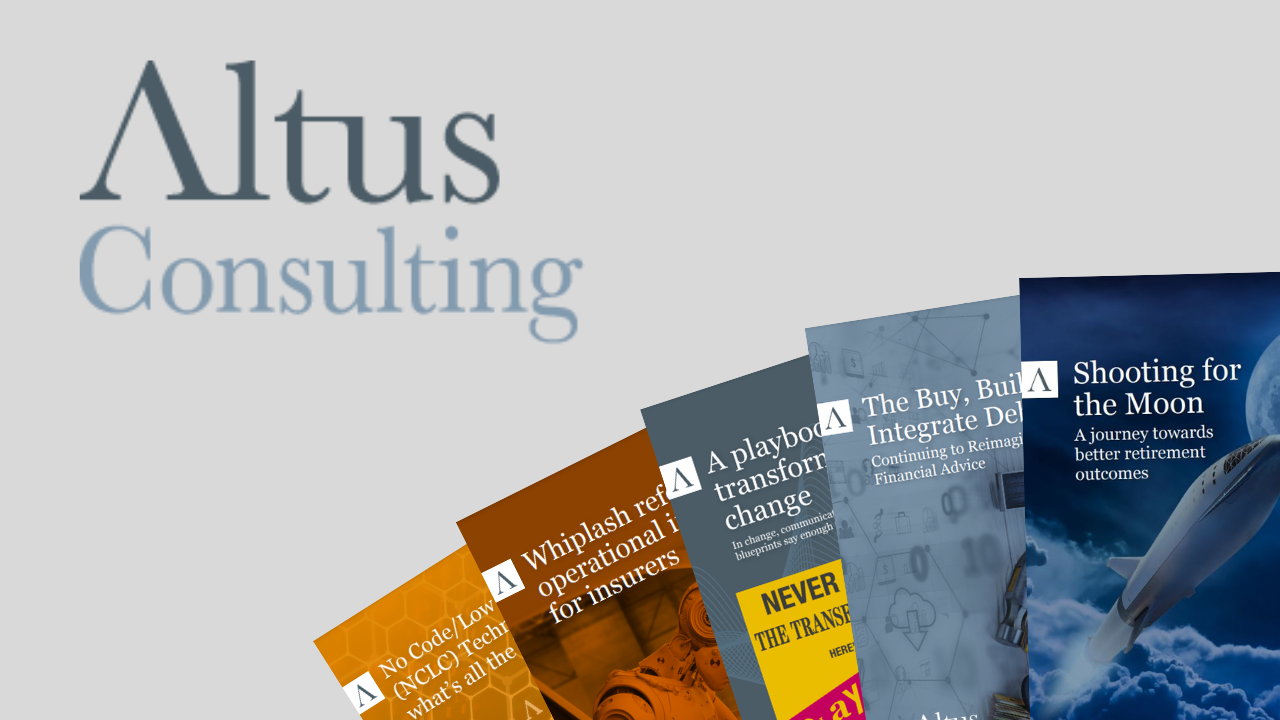“Maybe I’m foolish, maybe I’m blind
Thinking I can see through this and see what’s behind
Got no way to prove it so maybe I’m blind”
Rag‘n’Bone Man is spot on. Maybe I am foolish. Maybe I am blind. Maybe I can’t see what I think is around the corner. But. And it’s an important but. I believe there’s enough evidence – based on the businesses I visit, the research papers I read, the people I speak to, both here in the UK and overseas, that we are edging towards the cusp of something that might just threaten the relevance of many businesses operating a traditional model in the wealth sector – even for some of those who think they’re ‘doing digital’.
Waiting to be terminated
The robots are coming – but not in the ways predicted in science fiction movies. Artificial General Intelligence – where a machine can successfully perform any intellectual task that a human can – is the stuff of science fiction, and many, many decades away. But while we can breathe easy that Terminators are not out to get us just yet, the exponential progress we are making with digital automation and AI means that productivity, efficiency and quality improvements across a whole range of industries – financial services included – are here, right now, and developing fast.
And just like in the movies, the impact of digital will be disruptive, will be transformational. A recent report published by the Bank of England estimated that one in three jobs are at risk of automation by 2030. If that happens, the face of work – and pensions – will never be the same again. People will be terminated, just in a different way than in the movies.
The human touch
A great deal of media attention over the past few years has focused on what has been termed ‘robo-advice’, with technology providing guidance to those with relatively straightforward investment requirements. Many of these early ‘robo’ propositions in the UK have focused on ISA and GIA products, and with challenging commercial models and little in the way of offering ‘real advice’, have often been scoffed at as a mildly amusing irritant by those with many years in the industry.
But as with all new developments, lessons are learned, businesses evolve, new entrants emerge, not least the high street banks. One key lesson is that pure digital (or ‘robo’) is frequently not a winning proposition on its own, especially for a new brand. Instead, these propositions require the reassurance of the ‘human touch’ to be truly effective. As a result, some D2C propositions, such as MoneyFarm, Moola, Nutmeg, and Scalable Capital, have broadened their service to support B2B2C. Others, such as eVestor and Flying Colours, have developed hybrid solutions from outset, meeting the customer’s needs through a seamless digital experience and a human adviser where needed.
Meanwhile, some of the B2B services, such as Wealth Wizards and EValue, have taken on the ‘advice challenge’ and developed advice algorithms capable of providing regulated advice, rather than purely driving the investment decision. And as the market matures, we’re now seeing a number of ‘robo’ propositions looking at pensions and retirement planning, especially the pension transfers opportunity, which will enable them to scale more quickly. A smaller number are considering even more complex markets.
Wasted spend
The key for these propositions – and for the high street brand incumbents, the adviser firms and the wealth managers who are adapting their models – is to work out which aspects can be automated without a problem, and which parts still need the human touch. The hype may have focused on the front-end and what has been termed as the customer journey, yet much of the development focus is in the areas that customers don’t see, but which contribute significantly to the whole end-to-end process and customer experience.
When it comes to repetitive processes and transactional tasks, computers are faster, cheaper and more consistent than humans. In many cases, automation can also mean more compliant processes, with RegTech – or Regulatory Technology – now receiving much attention. Any technology that can provide greater regulatory compliance and assurance, consistently and at speed, is not surprisingly going to be popular, bringing with it the promise of greater profits and less regulatory risk.
But much of the current spend will be wasted.
Why? Because some businesses, some leaders, are just not ambitious enough. And ‘digital’ to them means tinkering around the edges, often aiming to provide the same, traditional linear investment journey but a bit quicker and at lower cost.
Others – both in the market and that I see in development – are pushing the boundaries further, much, much further. They recognise how the world is changing, how society and behaviours are changing. They don’t just incorporate digital capability, they aspire to be digital businesses – with a proposition that meets the needs of customers, delivers an Amazon or Facebook-style user experience, and is optimised to drive greater savings and deliver greater returns.
We will see the rise of new marketplace propositions which take into account a customer’s complete financial position, using real-time smart technology to proactively work out how to save the client money, for example on their utilities or car insurance, where to get good deals on regular purchases or things they’ve been ‘Googling’, where to save or invest, or how to optimise their income in retirement from their various wrappers and other assets. These new advice propositions are developing self-learning machines that will require no human intervention at all. Adding real value in real time. These are the services that will make much of what we see today look very pedestrian, very dated, very quickly.
Often the argument is that a robot can’t hold your hand or look you in the eyes in a bear market, and that’s a fair challenge. But anyone who thinks this type of digital experience – where the customer is truly at the centre of an all-encompassing service, not just at the end of a product sale – is light years away, well, it’s getting increasingly close to happening. And who’s to say it can’t be combined with reassuring humans, anyway?
Man vs Machine, Man plus Machine
Of course, many roles that were carried out by people are already being taken on by machines, and the automation of operational roles is a key transformational focus of any firm. And asset managers have been using powerful technology and algorithms for years to support their trading. Some now only use technology…
But even with these developments, it doesn’t necessarily mean that headcount is going to be cut dramatically – at least not in the short-term. Instead, we’ll see skills evolve and roles shift, or be created, with a greater need for technically demanding and knowledge-based activities, such as advanced analysis, interpretation and decision-making, that call for human insight and subjective assessment. Employers will be clamouring to employ (or outsource) behavioural psychologists, data scientists and AI experts, for example.
Plus, the machines still – for now – require some form of human oversight and support. We still live in a world where many people still like the reassurance of speaking to a human during the decision-making process, and I don’t expect that to change any time soon.
With so much at stake, so many moving parts, defining the capabilities that will be required, the roadmap from the ‘as is’ operating model to the ‘to be’ has never been more critical.
Deceived by what you believe
“Take a look in the mirror and what do you see
Do you see it clearer
Or are you deceived in what you believe?”
Quite simply, those who resist change, or who think ‘digital’ is something you ‘do’ alongside everything else, are deceiving themselves, and will find their propositions, in time, are no longer fit for purpose. And many of these will ultimately make headcount reductions simply to reduce costs to try to compete, not because they have re-imagined their businesses to truly compete in the new world order.
We all have choices to make. Don’t be the one left saying:
“I’m only human, after all, don’t put the blame on me.”




